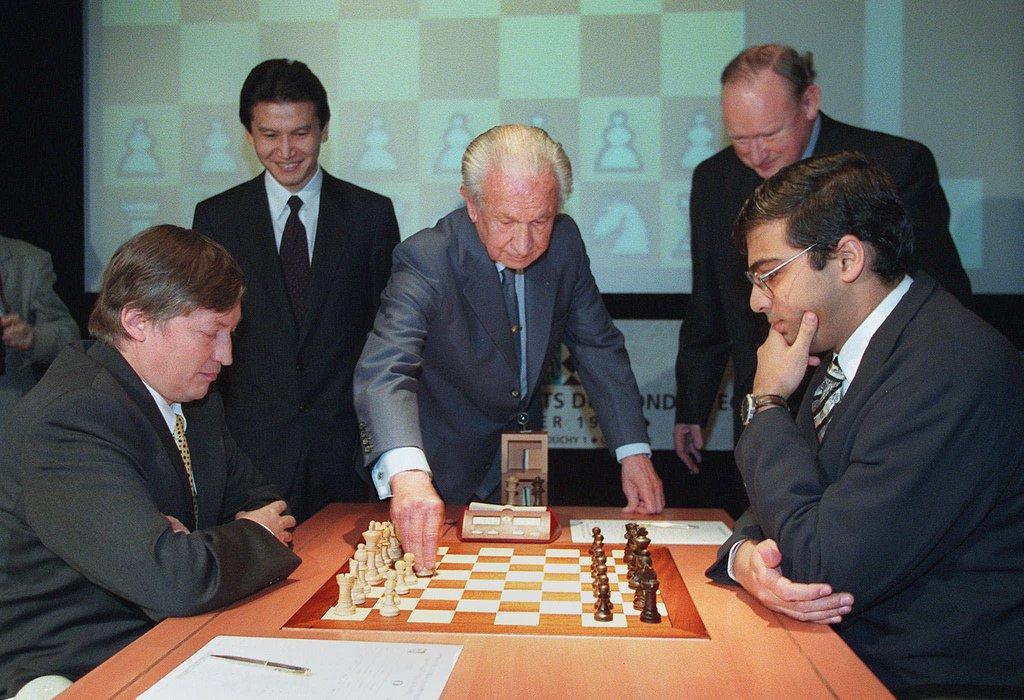
World Chess Federation’s Swiss bank accounts frozen over president’s Syria connection

The Swiss bank accounts of the World Chess Federation (FIDE) have been frozen because its Russian president is under US sanctions for alleged dealings with the Syrian government, according to FIDE and media reports.
This is in line with Switzerland’s efforts to clean up its reputation as a haven for ‘dirty money’.
Kirsan Ilyumzhinov, a millionaire businessman and ex-politician who has headed FIDE for over two decades, was placed under US sanctions in November 2015 “for materially assisting and acting for or on behalf of the Government of Syria and the Central Bank of Syria”. He has repeatedly denied the accusations.
“Kirsan Ilyumzhinov informed FIDE at various occasions that he will be removed from the sanction list in the very near future,” FIDE treasurer Adrian Siegel said in a letter posted on its websiteExternal link this week.
He says FIDE informed its UBS bank and was allowed to keep its accounts, but now after two years “the Swiss bank UBS has announced that they will immediately close our accounts”.
UBS said it could not comment on whether individuals or organisations were clients of the bank, according to ReutersExternal link.
However, the move is in line with Switzerland’s efforts to clean up the reputation of its banks. Following legal reforms, notably in 2011, suspect funds can now be frozen preventively, pending a possible court decision. Switzerland’s 2016 law on the Freezing and Restitution of Illicit Assets Held by Foreign Politically Exposed Persons (FIAA)External link is considered to be one of the most progressive in this domain.

In compliance with the JTI standards
More: SWI swissinfo.ch certified by the Journalism Trust Initiative




























You can find an overview of ongoing debates with our journalists here . Please join us!
If you want to start a conversation about a topic raised in this article or want to report factual errors, email us at english@swissinfo.ch.